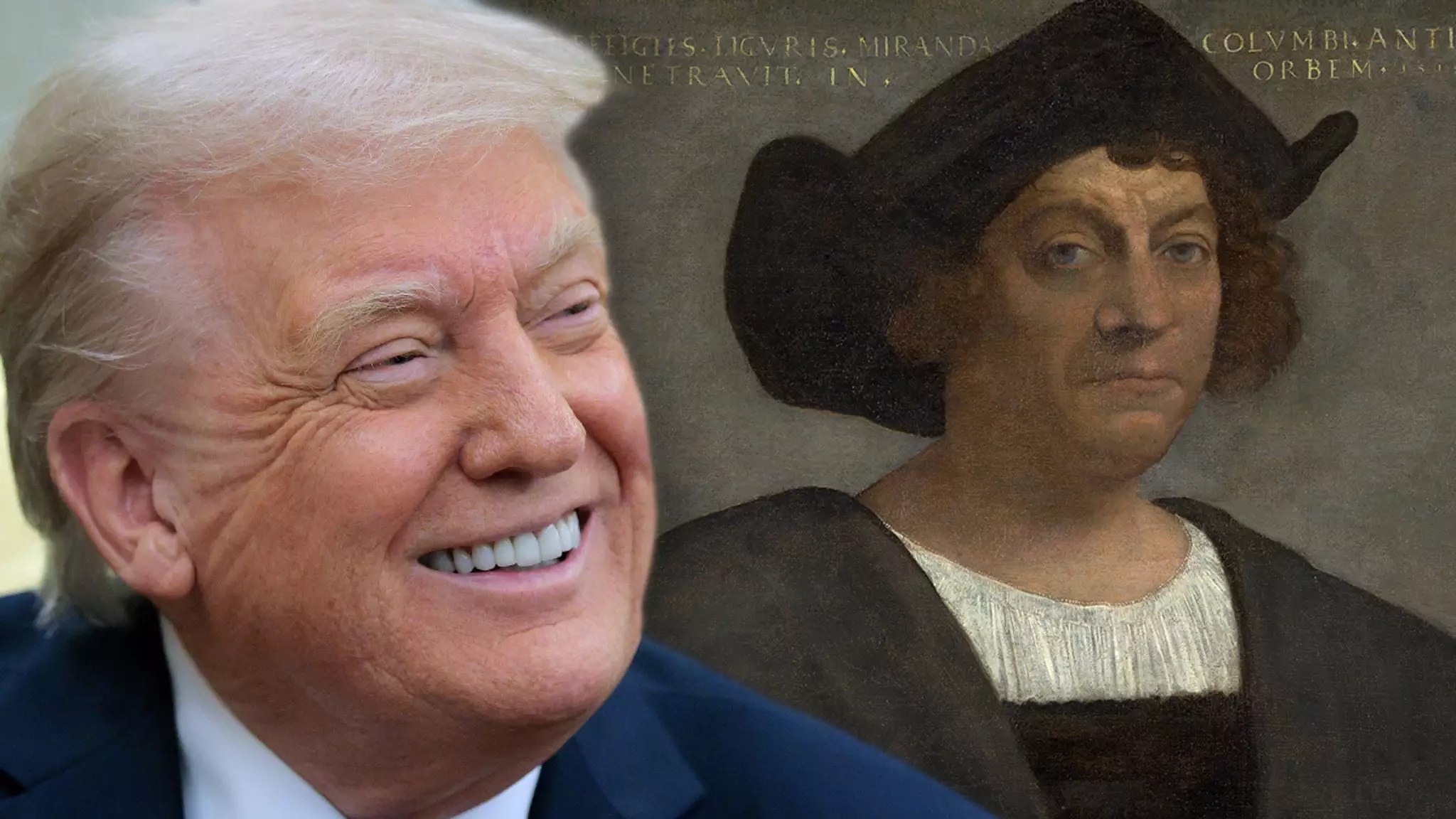In a defiant move that has ignited passions across the nation, former President Donald Trump has taken to his social media platform, Truth Social, to decry the Democratic Party’s alleged “wrecking” of Christopher Columbus’ legacy. Trump’s fervent declaration promises to “bring Columbus Day back from the ashes,” representing a significant stance that aligns with a sizable base eager for validation of their cultural icons.
The urgency in Trump’s message resonates deeply with his supporters, particularly in a political climate rife with debates over the legacies of historical figures. By asserting that Columbus has been wronged, Trump taps into the complex and often contentious portrayal of explorers in American history, juxtaposing the veneration of figures like Columbus against the acknowledgment of the painful histories that underlie their narratives.
Statues, Symbols, and the Battle for Cultural Narratives
Trump’s commentary extends beyond mere nostalgic reverie; it reflects an ongoing national dialogue surrounding the appropriation and dismantling of statues representing figures considered oppressive by contemporary standards. He highlights the fallout following the Black Lives Matter protests, during which numerous statues were defaced or removed. The response from activist groups is part of a larger movement advocating for racial justice, countering centuries of systemic oppression. However, in Trump’s rhetoric, the destruction of these monuments morphs into a battle cry—an opportunity to reclaim a past he believes crystallizes a positive legacy.
Critically, this discourse serves as an avenue to explore how the discussion surrounding Columbus can be illustrative of broader societal divisions. Are we witnessing a rehabilitation of historical figures, or is this merely a strategic play by Trump to galvanize his base? The former president’s pledge to re-establish Columbus Day seems, in essence, a matter of political performance rather than a substantial legislative initiative.
The Enduring Significance of the Columbus Day Debate
Though many jurisdictions have chosen to replace Columbus Day with Indigenous Peoples’ Day, acknowledging the tragic histories of colonization and indigenous genocide, Trump remains steadfast that Columbus Day should endure in its traditional form. He asserts that it remains a federal holiday, even as these changing times signal an evolving cultural consciousness. The discussion surrounding Columbus reflects a larger tension within America over how history should be remembered and taught.
By claiming to restore the holiday to its former glory, Trump is not merely defending Columbus; he is, perhaps, signaling a more extensive culture war against “woke” ideologies that challenge established traditions. The planned revitalization of Columbus Day will likely involve ceremonies that frame Columbus as a heroic figure, thereby reinforcing a narrative that many of his supporters embrace—one of American exceptionalism and cultural pride.
Deciphering Trump’s intentions leaves us pondering whether these actions serve genuine reverence or a calculated partisan maneuver to draw sharp lines in a divided nation. Regardless of interpretation, one cannot overlook that discussions surrounding historical figures command attention, potentially reshaping their narratives in the lens of contemporary politics. Like many elements of political discourse today, this debate on Columbus is likely to evolve, reflecting ongoing conflicts ingrained within American culture.


Leave a Reply